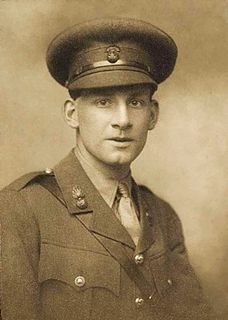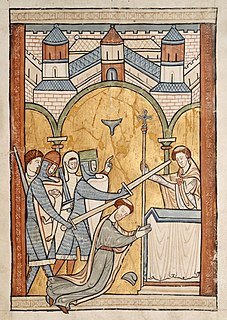A Quote by Viktor E. Frankl
Instead of possibilities, I have realities in my past, not only the reality of work done and of love loved, but of sufferings bravely suffered. These sufferings are even the things of which I am most proud, though these are things which cannot inspire envy.
Related Quotes
What will it matter to him if he notices that he is growing old? Has he any reason to envy the young people whom he sees, or wax nostalgic over his own lost youth? What reasons has he to envy a young person? For the possibilities that a young person has, the future which is in store for him? "No, thank you," he will think. "Instead of possibilities, I have realities in my past, not only the reality of work done and love loved, but of sufferings bravely suffered. These sufferings are even the things of which I am most proud, though these things are things that cannot inspire envy."
Forgiveness sees wisely. It willingly acknowledges what is unjust, harmful, and wrong. It bravely recognizes sufferings of the past, and understands the conditions that brought them about.Forgiveness honors the heart's greatest dignity. Whenever we are lost, it brings us back to the ground of love.Without forgiveness our lives are chained, forced to carry the sufferings of the past and repeat them with no release.
When you are subjected to the malicious and furious violence of the passions, and to the harassments of the Devil, during the fulfillment of various works for God, accept these sufferings as sufferings for the name of Christ, and rejoice in your sufferings, thanking God; for the Devil is preparing you, without knowing it himself, the most shining crowns from the Lord.
The success of everything depends on intuition, the capacity of seeing things in a way which afterwards proves to be true, even though it cannot be established at the moment, and of grasping the essential fact, discarding the unessential, even though one can give no account of the principles by which this is done.
There are confessable agonies, sufferings of which one can positively be proud. Of bereavement, of parting, of the sense of sin and the fear of death the poets have eloquently spoken. They command the world's sympathy. But there are also discreditable anguishes, no less excruciating than the others, but of which the sufferer dare not, cannot speak. The anguish of thwarted desire, for example.
We have forced everyone to go into marriage because of love. Because you cannot love outside it, so we have unnecessarily forced love and marriage to be together - unnecessarily. Marriage is for deeper things - even more deep: for intimacy, for a "co-inherence," to work on something which cannot be done alone, which can be done together, which needs a togetherness, a deep togetherness. Because of this love-starved society, we fall into marriage out of romantic love.
Envy is the most universal passion. We only pride ourselves on the qualities we possess, or think we possess; but we envy the pretensions we have, and those which we have not, and do not even wish for. We envy the greatest qualities and every trifling advantage. We envy the most ridiculous appearance or affectation of superiority. We envy folly and conceit; nay, we go so far as to envy whatever confers distinction of notoriety, even vice and infamy.
I shouldn't care what you suffered. I care nothing for your sufferings. Why shouldn't you suffer? I do! Will you forget me? Will you be happy when I am in the earth? Will you say twenty years hence, "That's the grave of Catherine Earnshaw? I loved her long ago, and was wretched to lose her; but it is past. I've loved many others since: my children are dearer to me than she was; and, at death, I shall not rejoice that I am going to her: I shall be sorry that I must leave them!" Will you say so, Heathcliff?





































